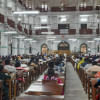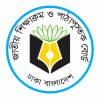A simple plan to fix education

Bangladesh is at a critical juncture. The recent student movement has made it clear: our education system is failing our youth. As an educator, researcher, and concerned citizen, I urge the interim government to take this opportunity to embark on a transformative journey toward a better future. This requires a complete overhaul of our education system, emphasising quality, meritocracy, and a relentless pursuit of excellence.
First, we must allocate significant resources to ensuring the betterment of education, with at least 10% of the national budget going to education and research. This investment is essential for building a thriving nation as the priorisitisation of education equals investment in the workforce, democracy, and national identity. We must also reshape the structure of our education system. This requires collaboration among eminent educators, researchers, and policymakers to design a curriculum that promotes critical thinking, problem-solving skills, and a love for learning. Rote memorisation and outdated teaching methods must be replaced with interactive learning, technology integration, and practical applications.
A successful education system relies on qualified educators. Unqualified teachers appointed for political reasons do a disservice to our students. Those who have not improved their teaching skills in five years should be offered retraining or asked to resign. Similarly, teachers who have not kept up with evolving pedagogy or inspired students despite five years of service should be encouraged to retire. The Ministry of Education should be led by a person of impeccable reputation who prioritises students' well-being above all else. Politics must be kept out of educational institutions, allowing teachers to focus solely on nurturing young minds.
The recent student movement shows the power and potential of our youth. They have proven that activism can thrive without political interference. Their energy and intellect should be directed towards constructive dialogue and collaboration within universities. Universities should be led by individuals who embody academic excellence. Vice-chancellors (VCs) should be appointed based on their proven records in research, scholarship, and administration. These leaders should be empowered to manage their institutions effectively, ensuring a safe and secure environment.
Our universities once had a vibrant education and research environment. This legacy must be revived by allocating a significant portion of the increased education budget to research. This will help us address national and international challenges, fostering innovation and driving Bangladesh towards a knowledge-based economy. The current promotion system within universities needs reform. Associate and full professorships should be awarded based on merit and a strong research portfolio, not just time served. A PhD from a reputable university and a solid research background should be prerequisites for university teaching positions. Hiring practices that restrict applications to graduates of the same institution should be abolished. A national pool allows for selecting the best minds from across Bangladesh, regardless of their alma mater. In addition, the University Grants Commission (UGC) should reevaluate its control over private universities, allowing them more autonomy in hiring and research funding. Private universities should be encouraged to attract top talent with competitive salaries and benefits from tax breaks for significant research expenditures.
The centralisation of examinations in Dhaka fosters inequality and compromises the recruitment process. A decentralised model should be implemented, conducting exams in various regions with examiners from different universities. This would reduce political influence and ensure a more equitable selection process. Corruption must be eradicated from the education system. A zero-tolerance policy should be established with stringent penalties for misconduct. Transparency and accountability must be the cornerstones of our educational institutions. Teachers deserve respect, admiration, and support. A comprehensive review of teacher salaries is necessary to create a compensation structure that reflects their critical role in society and ensures a decent standard of living. By valuing our teachers, we elevate the profession and attract the best and brightest to this noble calling.
The challenges facing our education system are immense, but they are not insurmountable. With a clear vision, unwavering commitment, and the courage to implement bold reforms, we can create an education system that empowers our youth, drives innovation, and builds a prosperous future for Bangladesh. The interim government has a unique opportunity to lay the foundation for a new era in education. Let us seize this moment and create a legacy of excellence that will inspire generations to come. The time for incremental change is over. We need a transformative shift that places education at the heart of our national development agenda. Let us invest in our children, empower our teachers, and build a knowledge-based society where every citizen can reach their full potential.
Dr Md Alamin is a researcher and writer, and assistant professor at North South University. He can be reached at [email protected].
Views expressed in this article are the author's own.
Follow The Daily Star Opinion on Facebook for the latest opinions, commentaries and analyses by experts and professionals. To contribute your article or letter to The Daily Star Opinion, see our guidelines for submission.

 For all latest news, follow The Daily Star's Google News channel.
For all latest news, follow The Daily Star's Google News channel. 










Comments